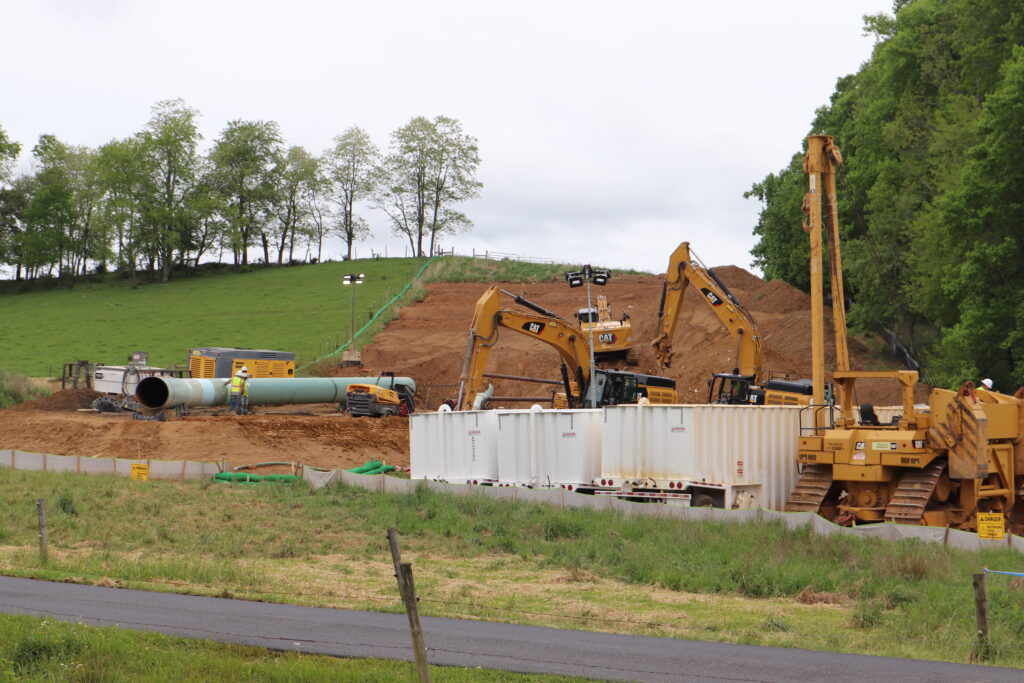The Mountain Valley Pipeline won’t be ready to begin operations this week, the project’s builder told federal regulators.
Equitrans Midstream had asked the Federal Energy Regulatory Commission (FERC) to approve its application to enter service on Thursday.
In a letter to FERC Tuesday, the company said it expects the pipeline to be ready to operate in early June.
Equitrans said it has to complete fewer than 10 welds and pressure test them with water. It said hydrostatic testing had been completed on 99 percent of the pipeline.
“Due to the extended construction duration to achieve weld-out, which has been associated with weather and environmental protection, Mountain Valley is adjusting its targeted in-service date to early June,” the company wrote to FERC.
Equitrans said it was not “premature,” as some critics had described, to approve the pipeline for service.
The project has drawn heavy opposition since its beginning in 2018. The May 1 failure of a water pressure test at Bent Mountain, Virginia, amplified the concerns of those living near it.
State and federal regulators have been muted on how closely they’ve been looking at the rupture, which released an unknown volume of water and sediment onto adjacent land.
The company is under a consent agreement with the Pipeline and Hazardous Materials Safety Administration to correct any safety flaws in the pipeline.
Construction on the 303-mile, 42-inch natural gas line underwent long pauses as opponents challenged the project in federal court. A spending agreement Congress approved last summer granted all remaining permits the pipeline needed.
Residents of Bent Mountain say the section of pipe that failed, near the entrance to the Blue Ridge Parkway, was installed six years ago.
It is undergoing a metallurgical analysis, but regulators have not said whether they will publicly disclose the results of that examination.
The latest cost estimate to complete the MVP is nearly $8 billion, more than twice the original projection. The legal challenges, as well as the increased cost of construction and materials have driven up the cost.
When finished, the pipeline will move as much as 2 billion cubic feet a day of gas from north central West Virginia to southern Virginia. The company is planning an eventual extension into North Carolina to supply utility customers.




















